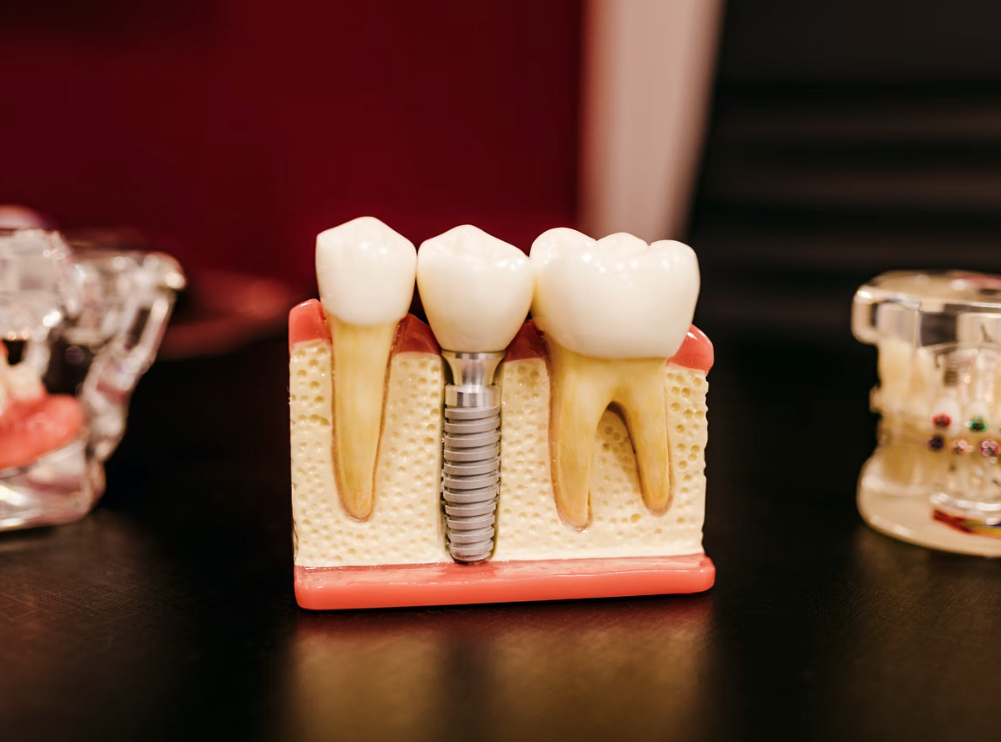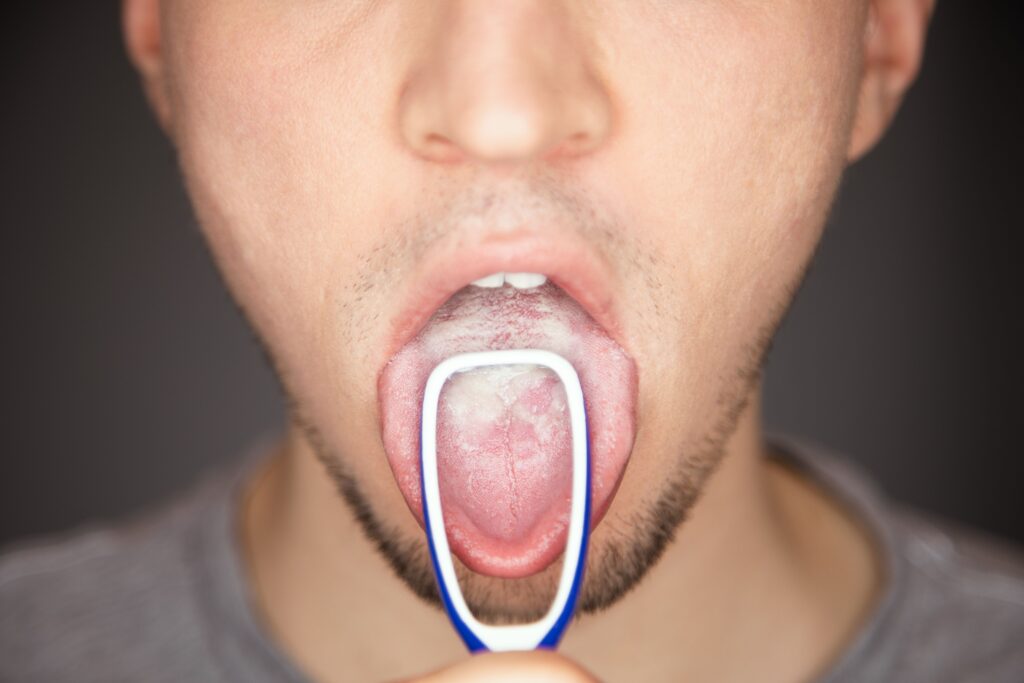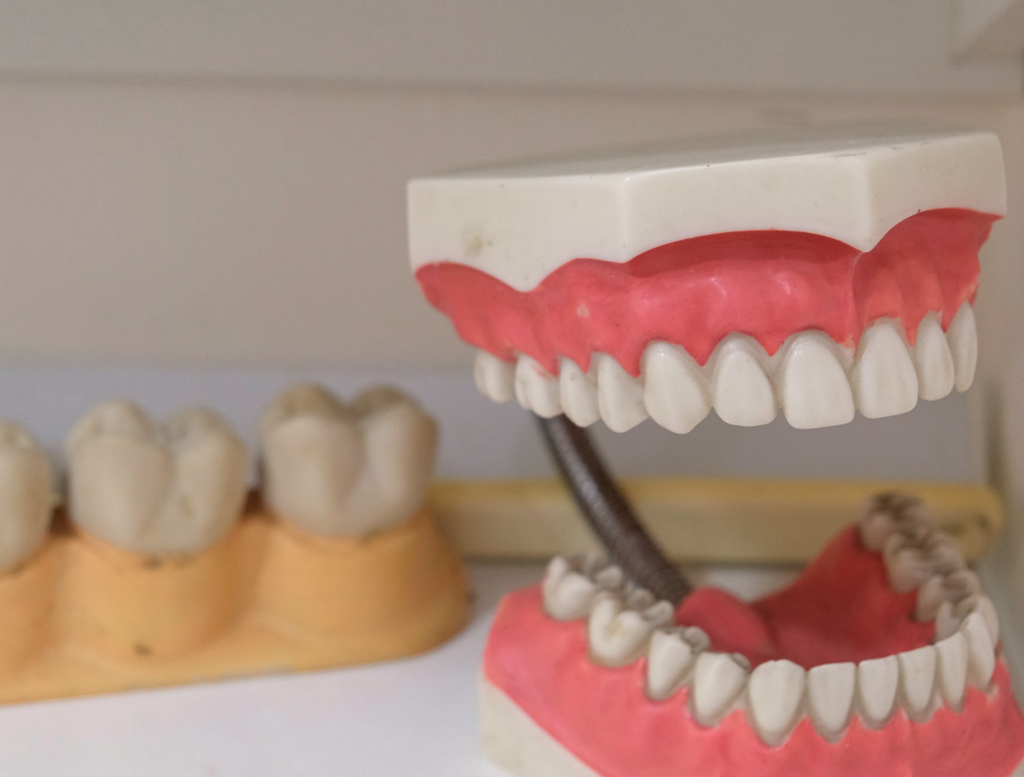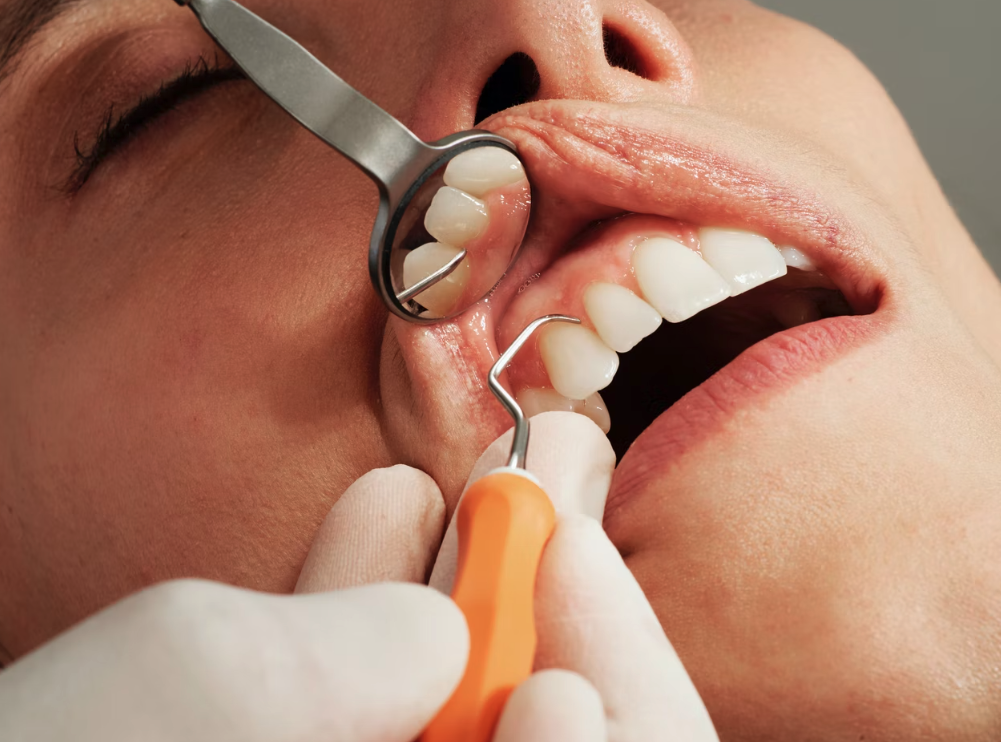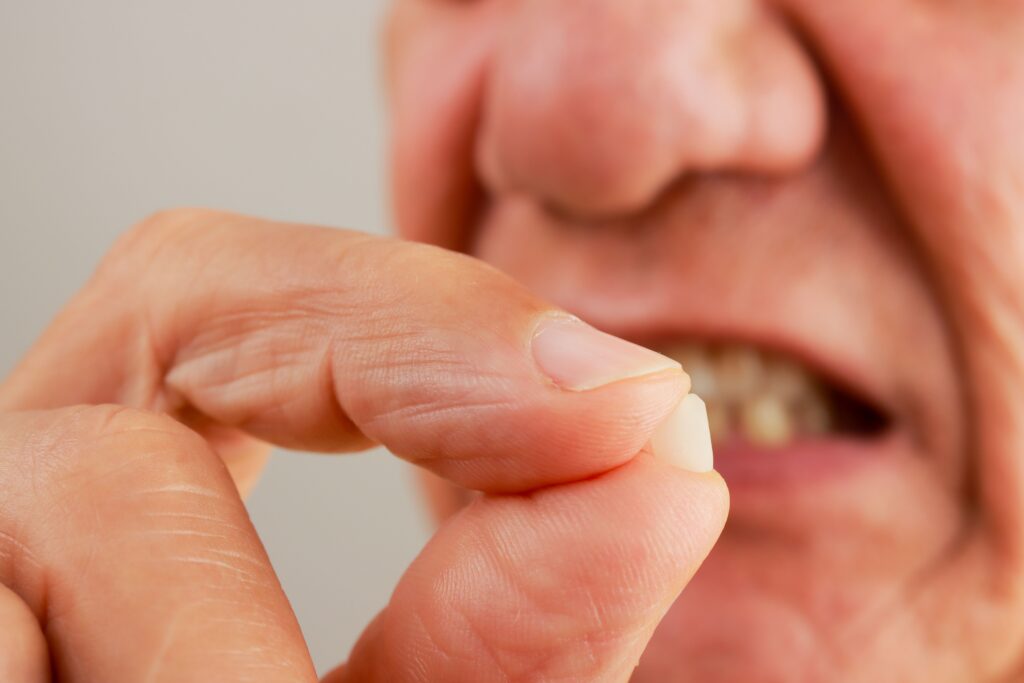A crown can get a cavity if the sealant on your crown wears down and bacteria are allowed to enter the space between the tooth and the crown. A common cause of cavities on teeth with crowns is food and plaque getting stuck beneath the crown, or along the gum-line.
See your dentist if you notice any changes in the fit of your crown or if it starts to feel sensitive. Make sure to brush and floss regularly and see your dentist twice a year for dental cleanings to help prevent cavities under your crown.
How Can You Tell if There is Decay Under a Crown?
If you think you might have decay under a crown, it’s important to see your dentist right away to prevent further damage or infection. Some signs that you may have decay include:
- Sensitivity to hot or cold temperatures
- Pain when chewing
- Visible decay on the tooth
- A foul taste in your mouth
If you have any of these signs, you may have decay under your crown. If the decay is not treated, it can cause serious damage to your tooth.If you think you may have decay under your crown, contact your dentist right away. They will be able to properly diagnose and treat the problem.
What are the Risks of Getting a Cavity Under Your Crown?
A cavity under a crown can cause serious damage to your mouth if it is not treated. The risks of getting a cavity under your crown include:
Tooth decay
When a cavity forms beneath a crown, the tooth decay can spread quickly and cause extensive damage to the tooth.
Infection
If the tooth decay is not treated, it can lead to an infection. Infections of the mouth can be extremely painful and can spread to other parts of the body if left untreated.
Gum disease
If the tooth decay spreads to the gums, it can cause gum disease. Gum disease is a serious condition that can damage the gums and bones around the teeth.
If you think you may have a cavity under your crown, it is important to see a dentist right away. Treatment for a cavity under a crown may involve removing the decay and then placing a new crown over the tooth. If the decay is not treated, it can cause serious damage to your mouth and overall health.
What to do if You Have a Cavity Under Your Crown?
If you believe that you have a cavity under your crown, you should go to your dentist as soon as possible. A cavity under a crown can be difficult to treat, and may require a root canal. Your dentist will likely recommend removing the infected tissue from your tooth if the cavity has become infected. After a root canal, you will need to have another crown placed on your tooth.
If you do not treat a cavity under your crown, it can lead to an infection which can spread to other parts of your body, and can be very dangerous. If you think you may have a cavity under your crown, call your dentist right away.
How can you Prevent Cavities Under Your Crown?
To prevent cavities under your crown, you should brush and floss regularly and see your dentist twice a year for dental cleanings. It is also important to make sure that the sealant on your crown is in good condition and that food and plaque do not get stuck between the tooth and the crown. Taking good care of your dental crowns will make them last years longer. If you notice any changes in the fit of your crown or if it starts to feel sensitive, you should see your dentist right away.
Visit Family Tree Dental in Southeastern Ohio to Treat a Cavity
If you believe that you have a cavity under one of your crowns, you should see a dentist right away. If you don’t currently have a regular dentist and you are living near the Ohio/West Virginia boarder, make an appointment with the closest Family Tree Dental office to you. Our dentists treat all patients with great care and we take pride in the number of smiles we have restored in the Marietta, Belpre, and Parkersburg areas!


